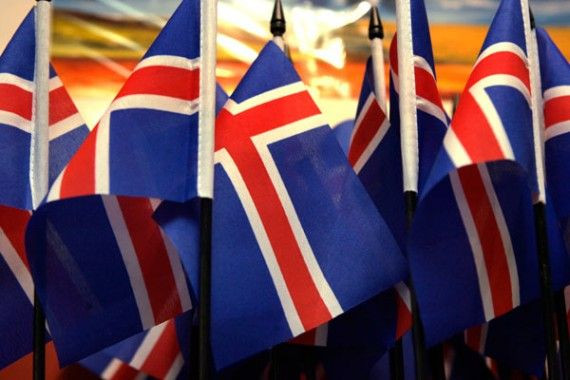Iceland Has Turned Its Back On The European Union Because They Haven't Learned Anything From The Financial Crisis, Says Prime Minister

Since 2008, Iceland has been synonymous with financial failure. But Iceland, says its prime minister, Sigmundur Davio Gunnlaugsson, has also been able to learn from its mistakes and approach problems the way other countries in Europe are dealing with them.
“In many ways the crisis is not over and the hangover is still to come in many places," said Gunnlaugsson, who spoke live to CNBC on Thursday. "Because of the severity of the situation and the fact that we weren’t able to rescue the financial system or the banks that failed and had to learn some difficult lessons and learn to deal with things and how to do them differently, we’ve learned a lot and are prepared to carry on and offer some insights into how to tackle a crisis like this.”
In some respects, Iceland has been a template for what not to do in a financial crisis. Its banks owned assets that were almost 10 times the country’s GDP and far greater than its reserve bank could deal with, but since then, the country has made a remarkable recovery and may now be an example of how to recover. From unemployment levels of 10 percent and inflation that was near 20 percent, the country has reduced corporate debt by half, all the way down to 150 percent of GDP, has gotten unemployment down to 4 percent and has seen steady growth since.
However, Gunnlaugsson also noted that Iceland’s ability to bounce back has as much to do with its independence from the European Union as it does with having a small population and the fact that it gave up on its banks and defaulted on the debt. At the time, it was a decision that was widely condemned by political and financial leaders around the world, who said that Iceland would be isolated from financial markets and would essentially be the black sheep of the world. It didn’t last and Iceland now operates in global financial markets and still has healthy trade with the European Union and the United States.
The prime minister believes that European countries and banks must look at them and learn.
“The European banks survived but haven’t learnt from the experience. They are still functioning on the regulations that brought down the Icelandic banks,” he said.
While fish and aluminum are the main exports for the small north Atlantic country, plans are in place to diversify and make the nation of 300,000 people a center for pharmaceuticals, biotechnology and data centers. The country also now operates a free-trade agreement with China.
For now, things are looking up for Iceland, but the Krone remains volatile and Gunnlaugsson says that it will be many years before a full recovery can be reported in Iceland.
“Most of these things have to do with being independent and being in a position to adapt,” Gunnlaugsson said.
© Copyright IBTimes 2024. All rights reserved.






















